North Korea's "charm offensive" is further evidence of an evolving regime.
On January 2, 2013, the Rodong Shimun — North Korea’s state-run newspaper — published Kim Jung-Un’s New Year's “guidance,” which laid out details of his vision for the country. He spoke of a progressive national ideological shift in thinking that must be pursued by every North Korean while on their way to work, at work, and after work. The speech called for mutual development of the economy and the military, with priority placed on economic innovation. The “guidance” spelled out the facets of capitalism: innovation, entrepreneurship, market development, and new product production. Kim Jung-Un encouraged his "comrades" to focus on changing their way of thinking about economic modernization methods, while placing emphasis on maintaining national sovereignty as a state. The Machiavellian state is not collapsing, but instead has begun to evolve.
The Reality of Evolution in North Korea
Despite sanctions, the quality-of-life index and Gross Domestic Product (GDP) is increasing for North Korea — thanks to relaxed economic laws passed last year. Their GDP grew by 1.6 percent, while five percent of North Koreans suffer malnutrition — as opposed to 17 percent in the rest of Asia. The North Korean legal system is also evolving. Together, economic development and decriminalization of capitalist activities is resulting in an improvement in human rights conditions, and economic development in the country. North Korea's human rights record has been atrocious in the past, and Kim Jung-Un — “The Marshall” — is aware of the implications of this.
According to an article in NK News, Kim Jung-Un has reduced punishments for a litany of offenses, including the fines of $100 for listening to foreign radio, which is about a years salary for the average North Korean. For $2,000, a North Korean can “buy freedom” and avoid maximum sentences and save their families from kin-crime persecution.
Though these examples are unlikely to raise acclaim from the international community, especially with Kenneth Bae still incarcerated, they are small — but not insignificant — signs of improvement.
The prison population has been on the decline for 15 years, according to David Hawk’s recent “Gulag Report.” Contemporary estimates place the number of prisoners in North Korea at approximately 80,000-120,000, which roughly equates to about 0.08% of their population; an extremely low percentage in comparison to most other nations.
North Korea appears to have been on a “charm offensive” since tensions on the peninsula calmed down. Kim Jung-Un has been promoting the idea of peace through cultural diplomacy. The Marshall’s primary aim is to achieve “mutual recognition” and a peace treaty with South Korea. His secondary aim is to normalize relations with South Korea and the United States. The Marshall’s recent meeting with “The Worm,” Dennis Rodman, makes one wonder if allowing Rodman to hold his daughter, Joo-Ae, is more than just a charm offensive. Never before has an American held a North Korean leader’s sole heir in their arms before.
Additionally, Kim Jung-Un has allowed numerous cultural events to take place in North Korea this year. He hosted the Harlem Globetrotters once and Rodman twice. There have been movies produced, film festivals, and countless sports and music projects ranging from parkour to Christian music groups. There has even been an increase in student educational exchanges, as well as business exchanges, with scholars and non-governmental workers from all over the world. The South Korean flag was paraded in Pyongyang during a weightlifting event, while a North Korean movie, “The Flower Girl,” was preparing to hit the big screen in South Korea. Family reunions have also resumed. Unprecedented concessions are being made every day. Recently, a group of five motorcyclists from New Zealand were permitted to ride from Mount Peaktu, North Korea, down to Mt. Hala (Jeju Island) in South Korea — another historic first. Kaesong Special Economic Zone (SEZ) is back in full operation, with new terms of conditions dedicated to longevity, sustainability, and mutual respect. A “Peace Park” is being constructed, with the hopes that North and South Koreans will be able to meet, talk and eventually embark on inter-state travel through there.
Conflicting Rhetoric
For “Pyongyangologists,” these events are indisputable indications of changing trends and patterns that have been taking place in North Korea under Kim Jung-Un’s leadership. Although he is unlikely to totally open the floodgates to the point where his family’s dynastic rule collapses, he is nonetheless opening them slowly.
Internet will not be adopted any time soon, but other forms of science education and technological development are occurring. North Korea appears to be taking lessons from other socialist countries that have normalized relations with the United States, and placed its priorities in economic progression focused on contemporary models. Seeing India, South Korea, and the US move toward a technology-based economy, Kim Jung-Un is working diligently to develop his scientists to a level at which North Korea can catch up with the rest of the world — the North Koreans have a space program, sustainable energy projects, and infrastructure upgrades in the works.
North Korea makes a case for their desire of de facto nuclear recognition, which North Koreans believe they are justified in having. “If people who threaten us can have them, then we must have them too — to protect our people because we can’t depend on anyone but our own government,” as one North Korean official said to me.
I later asked the same official how he felt about the US dropping atomic bombs on Japan, their historical enemy. "[The] root cause of all [their] problems," I was told, and that "it wasn’t good because innocent people got killed." North Korean officials claim that the country doesn’t want to hurt innocent people, but so long as other countries have nuclear weapons, there can be no proliferation. They say it’s up to the individual state to make the decision, and that “individual states don’t need permission from their enemies to protect themselves from them.” They claim to maintain truer defensive force posturing than Japan. Indeed, North Korea will never give up its nuclear weapons.
The ball is still in Washington's court. It will not bounce under Strategic Patience Policy, no matter what improvements North Korea makes, unless they abandon their nuclear program. North Koreans will not do this as long as they feel outside threats to be inevitable, and while they view the US as an untrustworthy policy maker. They have watched the US betray their allies and renege on deal after deal in the past 60 years. There are those who purposely or inadvertently prevent engagement from happening — but for now, they are in the United States, not North Korea. We must learn to understand North Korea’s behavior under the young Marshall. Brinksmanship and charm offensives used to go hand in hand, but North Korea has evolved and if we choose to try to understand them, and recognize them and their sovereign rights, then maybe tensions will not escalate so high year after year.
Many experts will assert that others are running the show behind the scenes, but it's more likely that these changes are coming quite directly from Kim Jung-Un. Kim Jung-Un noted in his guidance that initial changes could be a little painful in the beginning, but would become easier over time. His comrades comply because they know that any sign of internal struggle — to the outside world — could lead to an attack against the regime if it’s seen as vulnerable.
Old party hardliners in North Korea are franticly watching as “The Marshall” takes “survival diplomacy” to the next level: state evolution. Western actors, who purposely or inadvertently contribute to maintaining the status quo of the proxy conflict, do so based on the same moral arguments that drag us into other unnecessary wars, or irrational policies that result in human oppression.
Though the “status quo prolongers” may not mean to, they contribute to North Korean state stagnation, isolation, and the deprivation of millions of people by refusing to be part of the solution. They focus on hawkish, biased, and subjective policy because they have similar perceptions of North Korean behavior. Politics alone have never resolved conflicts; it has always been economic and cultural exchanges.
Will the world accept the undeniable signs that Kim Jung-Un is developing the economy and encouraging a change in ideological thinking? Will they notice the scientific innovation and the improvement in human rights conditions?
Not likely. This is not the first time North Korea has made attempts to engage the world. In the past, their attempts have been drowned out by opportunistic rhetoric. Human rights NGOs take their cases to the United Nations and universities around the world during calm periods. The silence in the air is filled with new vigor, reigniting the anti-North Korea hate machine. Before North Korea’s efforts can be taken seriously, “the prolongers” will have undermined North Korea’s attempts to seriously engage the world.
Invalidated assertions are even made up out of thin air just to keep “Asia’s boogeyman” looking scary. Human rights NGOs contribute to most of the public’s perception of North Korea. Almost anything the public knows about North Korea comes from human rights groups, the media, and their combined propaganda. NGOs must be opportunists to survive.
One such group, The Committee for Human Rights in North Korea, regularly propagates misperceptions based on circumstantial cause and effect information. Their perpetual claim is that North Korean’s are malnourished — but again only five percent are malnourished compared to 17 percent in the rest of Asia, according to British academic Hazel Smith.
Prolonging the Conflict
The Honorable Michael Kirby AC CMG, a former Australian judge, recently stirred up anti-North Korea passions at the UN by presenting well-researched information about human rights atrocities in North Korean “gulags.” One has to wonder if Kirby was aware of the changes that have taken place since Kim Jung-Un took power, as he certainly didn’t acknowledge them. The timing is peculiar for his speech, being as it occurred during a “charm offensive.”
This is a pattern that seems to repeat itself every year. In recent years, some unsettling nuances have become apparent to me in the North Korean human rights discourse. Through the years that I have followed these patterns, I have noticed a few things lacking in the human rights abuse arguments. Namely, they often downplay the significance of “what year” their defectors served in prison, what crime they were accused of committing, what the North Korean law says, and how the “spy game” influences their testimonies.
The year is important because if they served in prison in the 1990s, it cannot possibly reflect the regime's current policy. The North Korean law is important because all countries' citizens have laws they must follow, whether they agree with them or not. A convict is a convict, whether the law is fair or not. Lastly, the “spy factor” is important because North Korean defectors feel immense pressure to demonize their homeland when they go through indoctrination training and start working with NGOs as a means of survival. Anything they say that contradicts the mainstream rhetoric can make their intentions seem questionable.
Other examples of human rights discourse being used to thwart North Korean attempts at engagement occur in this annual pattern. For example, years ago, an American student was hiking through China and went missing, and the Hudson Institute blamed North Korea for “probably kidnapping him.” The Committee for Human Rights in North Korea (HRNK) then said Pyongyang was responsible for thousands of kidnappings of foreigners over time. However, the North Korean government has learned from their kidnapping mistakes in the past. They have not done it for decades; both points are made by Andrei Lankov, in his new book. HRNK suggested that 20,000 prisoners have gone missing; implying that they could have been killed.
Indeed, those who listen to these stories understandably assume the worst, and thus believe that North Korea is completely “irrational and crazy” and should be toppled to “liberate masses of oppressed North Koreans.” The truth is that most North Koreans, and even many defectors, love their country. Recently, many defectors have re-defected back to North Korea and have reportedly not been punished for doing so. In a final strange example, Kim Jung-Un tried to signal regime change to the world last year by showing how they enjoyed American Disney performances; but this event was manipulated by the international media and their intentions were ignored. Consequently, North Korea was accused of violating Disney’s property rights.
Human rights groups claim that they exist to improve the situation of the average North Korean, but their actions often suggest that they only help those who defect from North Korea, denouncing the regime. By taking this approach, the regime becomes demonized and their intentions are undermined.
This is a flawed approach to dealing with a population of over 24 million inhabitants, most of whom just want to see their country develop and socioeconomic standards to improve. Many other invalidated rumors have surfaced over the past few months, such as “Kim Jung-Un’s ex-girlfriend [being] machine-gunned to death for making porn,” a very unlikely event which has not been proven and has been denied by North Korea. The source of this misinformation is unknown, but it serves as another example of opportunist propaganda by the prolongers. There is also no evidence to support these claims.
The intent behind misinformation is to distract the international public from noticing the more positive changes that are actually taking place. Every year, these misinformation campaigns occur during opportunities for positive engagement. In 2012, the big distraction was that a general was executed by mortar round; an unlikely means of execution even if he really was executed, which he was not. This and several other bogus claims last year prevented the world from even considering that Kim Jung-Un had succeeded in dynastic change.
The misinformation campaign benefited the prolongers as they tried to convince the world that the time to deal a deathblow to North Korea was in the midst of “unexpected” leadership change. They claimed Kim Jung-Un had only a few years of preparation and North Korea was in a weak state. Actually, Kim Jung-Un had been preparing for the position since he was a child, according to his former chef, and North Korea was not in a state of confusion; they were in the midst of a regime-changing shake up, designed to make this entire new direction possible.
New Perceptions and Approaches
Will the world miss out on a golden opportunity to take Kim Jung-Un and a changing North Korea seriously? Or will we allow him to year after year be able to make the argument that during times when he held out the olive branch, he was largely ignored?
Making up stories, sensationalizing abuses, and painting an incomplete picture by not reporting positive change, does not help matters — it makes them worse. Improving human rights conditions in North Korea doesn’t just require an ideological shift solely on their part, but it takes one on ours as well. We should educate ourselves about the reasons for the North Korean government’s behavior, and on development in general. We need to try to understand that the overall solution does not lie in playing hard-line politics, but in undermining the politics altogether by focusing on engagement through cultural diplomacy and development.
The views expressed in this article are the author's own and do not necessarily reflect Fair Observer’s editorial policy.
Image: Copyright © Shutterstock. All Rights Reserved
Support Fair Observer
We rely on your support for our independence, diversity and quality.
For more than 10 years, Fair Observer has been free, fair and independent. No billionaire owns us, no advertisers control us. We are a reader-supported nonprofit. Unlike many other publications, we keep our content free for readers regardless of where they live or whether they can afford to pay. We have no paywalls and no ads.
In the post-truth era of fake news, echo chambers and filter bubbles, we publish a plurality of perspectives from around the world. Anyone can publish with us, but everyone goes through a rigorous editorial process. So, you get fact-checked, well-reasoned content instead of noise.
We publish 2,500+ voices from 90+ countries. We also conduct education and training programs
on subjects ranging from digital media and journalism to writing and critical thinking. This
doesn’t come cheap. Servers, editors, trainers and web developers cost
money.
Please consider supporting us on a regular basis as a recurring donor or a
sustaining member.
Will you support FO’s journalism?
We rely on your support for our independence, diversity and quality.


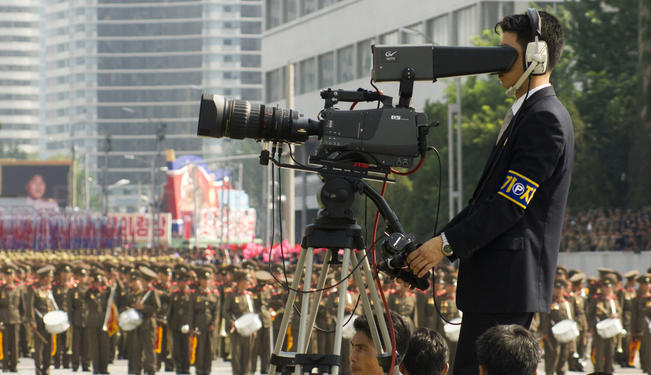

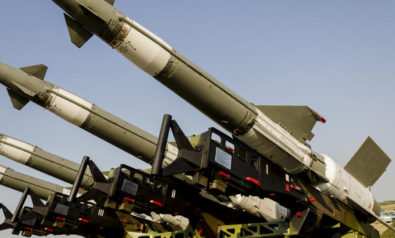


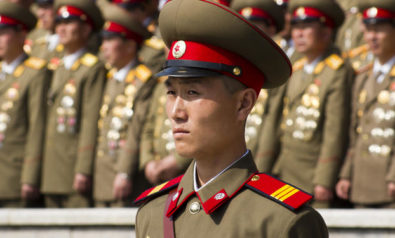
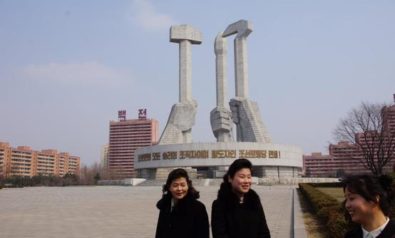

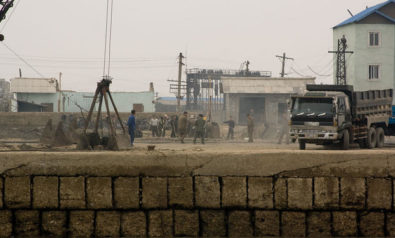

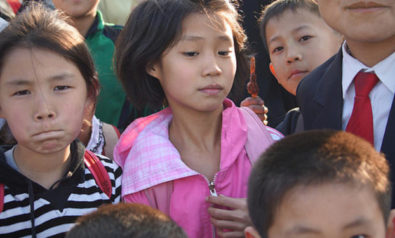

Comment